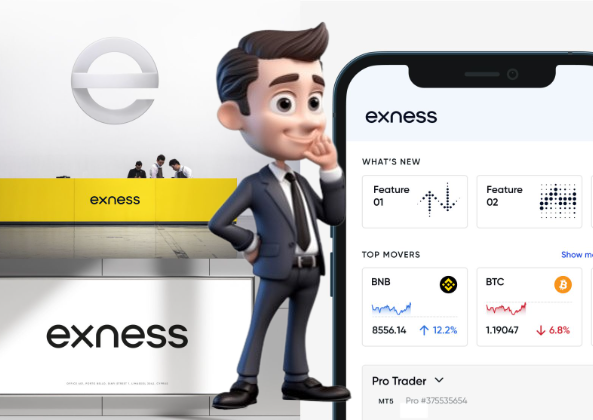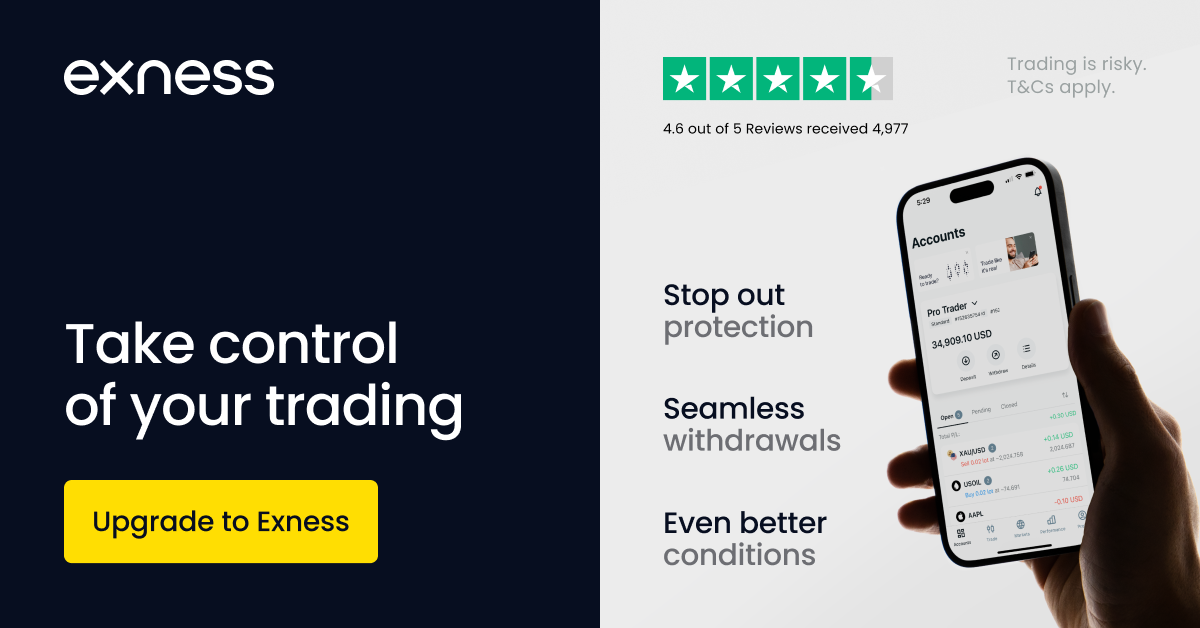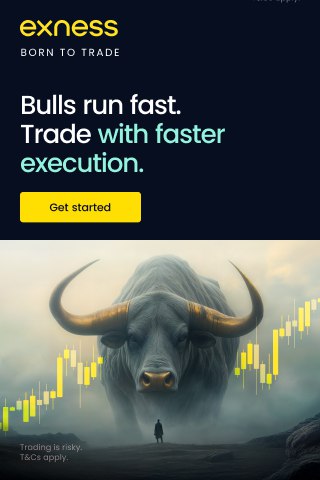
4 minute read
Exness zero account pros and cons by Exness Trading Tips
Among the different trading accounts offered by Exness, the Zero Account is one of the most popular choices for traders who want 0.0 pip spreads on major forex pairs and commodities for up to 95% of the trading day.
But like any account, it has both advantages and disadvantages. In this article, we’ll go through the pros and cons of the Exness Zero Account 2025, with examples and insights to help you decide if it’s the right choice for your trading style.
👉 Start trading on Exness today:

how to create Exness Real Account
Pros of the Exness Zero Account
1. Ultra-Low Spreads (0.0 pips)
The biggest advantage of the Zero Account is that spreads are fixed at 0.0 pips on many major instruments like EUR/USD, GBP/USD, XAU/USD for 95% of the day.
For scalpers, news traders, or algorithmic strategies, this provides a stable and predictable trading environment.
2. Transparent Commission Structure
Instead of hidden fees or wide spreads, the Zero Account charges a fixed commission:
From $0.2 to $3.5 per side per lot depending on the instrument.
Round trip (open + close) costs between $0.4 to $7 per lot.
This makes it very easy for traders to calculate exact costs before entering a trade.
3. Ideal for High-Frequency Trading
If you open and close multiple trades a day, low spreads become more important than avoiding commissions. That’s why the Zero Account is highly recommended for:
Scalping strategies
News trading during high volatility
EA/algorithmic trading
How to Open a Zero Account in Exness

4. Access to Wide Range of Instruments
The Zero Account isn’t limited to forex. Traders can also access:
Precious metals like gold (XAU/USD)
Energies like oil
Indices
Some cryptocurrencies
This makes it a flexible account for professional traders.
5. Swap-Free Option Available
For Muslim traders, Exness provides a swap-free Zero Account (Islamic Account), ensuring compliance with Sharia principles.
Cons of the Exness Zero Account
1. Commission-Based Costs
The Zero Account may not suit beginners who prefer spread-only accounts. For small trade sizes, the commission might feel high compared to Standard Accounts.
2. Minimum Deposit Requirement
Opening a Zero Account usually requires a minimum deposit of $200, which is higher than Standard and Cent Accounts that allow deposits from just $1.
3. Not Always the Cheapest Option
While spreads are 0.0, the commission can make trading more expensive than Raw Spread in some cases. For example, if you trade large lots and don’t need guaranteed 0.0 spreads, Raw Spread might be cheaper.
4. Best for Experienced Traders
The Zero Account’s commission system and professional trading conditions are not ideal for beginners. New traders may find the Standard or Cent Account easier to use.

Example: EUR/USD Trade on Zero Account
Let’s say you trade 1 standard lot (100,000 units) EUR/USD:
Spread: 0.0 pips
Commission: $3.5 per side
Round trip = $7 total cost
Now compare with a Standard Account, where spreads might average 1 pip:
1 pip ≈ $10 per lot
Cost = $10
✅ In this case, the Zero Account saves $3 per trade compared to the Standard Account.
Who Should Use the Zero Account?
The Exness Zero Account is best for traders who:
Use scalping or EA strategies.
Trade during high volatility events where spreads often widen.
Prefer transparent, commission-based pricing.
Have enough capital to deposit at least $200.
👉 Ready to open your Zero Account?
Conclusion
The Exness Zero Account 2025 is a powerful option for professional traders seeking ultra-tight spreads and stable trading conditions. Its 0.0 pips spreads and transparent commissions make it one of the best accounts for scalping and algorithmic trading.
However, for beginners or small-capital traders, the commission and deposit requirements may be a barrier.
👉 If you’re serious about trading and want to reduce costs in the long run, the Zero Account is one of the best choices Exness offers.
FAQ – Exness Zero Account Pros and Cons 2025
1. What is the minimum deposit for the Exness Zero Account?Usually $200, depending on your payment method.
2. Does the Zero Account have 0.0 spreads all the time?Yes, on many major pairs for up to 95% of the trading day.
3. How much commission does Exness charge in the Zero Account?From $0.2 to $3.5 per side per lot, depending on the instrument.
4. Is the Zero Account good for scalping?Yes, it’s one of the best choices for scalpers due to stable spreads and predictable costs.
5. Which is better, Zero Account or Raw Spread?Zero Account is better for traders needing guaranteed 0.0 spreads, while Raw Spread is often cheaper for traders who don’t mind spreads fluctuating.
See more:
EXNESS cent account review 2025: Is a Cent Account profitable?
EXNESS standard vs standard cent account: What is the difference between standard and standard Cent Account?
how to create a standard cent account on EXNESS
what is swap in EXNESS? What do swaps mean in forex?

